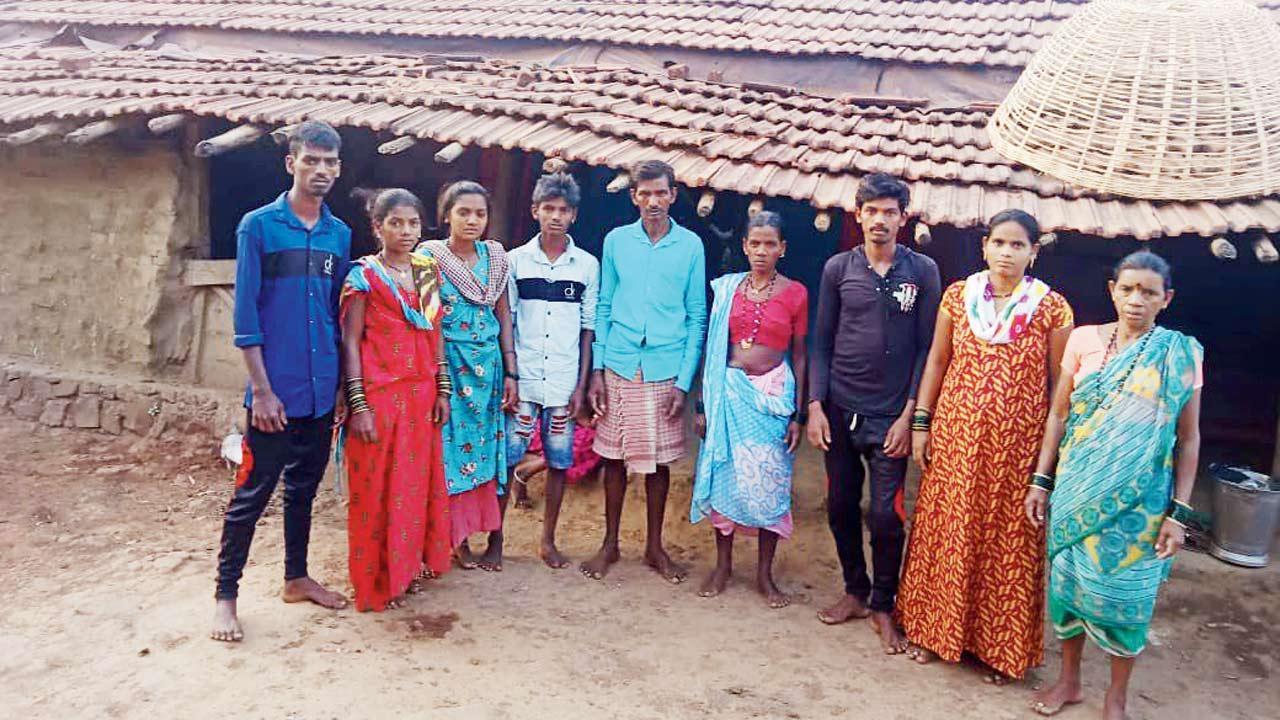State Family Welfare Bureau takes detailed explanation of events that led to the death of a 20-year-old pregnant woman and her premature child

The deceased woman’s family at their home in Jawhar taluka. Pic/Hanif Patel
The civil surgeon’s office in Palghar district has sent a detailed letter to the State Family Welfare Bureau, Pune, which had sought an in-depth explanation of the tragic death of a deaf-and-mute 20-year-old tribal woman. The Family Welfare Bureau wrote to the civil surgeon after mid-day published a cover-page story on the matter on Saturday, April 16. The pregnant woman, from Jawhar taluka, was rushed from one hospital to another, but neither the child nor the woman lived.
ADVERTISEMENT
Dr Sanjay Bodade, civil surgeon of Palghar district, confirmed to mid-day, “We received the letter from the health department, Pune, on Saturday and I have sent a detailed reply to the letter. It’s a normal procedure.” On the night of April 10, the woman developed severe pain and her family rushed her to Palghar Rural Hospital, but it didn’t have a C-section surgery facility. She was referred to Cottage Hospital in Dahanu.
Though there was a C-section surgery facility, Cottage Hospital told the family they don’t have a neonatal unit required for premature babies and referred her to nearby Vedanta Hospital, where she gave birth to a dead boy. She then started bleeding profusely.
Vedanta Hospital referred her to the civil hospital in Silvassa, a city in neighbouring Dadra and Nagar Haveli, where she died of vaginal bleeding. Her death speaks volumes about the crumbling health infrastructure in rural Maharashtra. Palghar civil surgeon’s three-page response mentions minute-to-minute details as published in this newspaper on April 16. The letter is in possession of mid-day.
The family members of the deceased woman told mid-day that a team of doctors also visited them to enquire about the case details. “The doctors visited us on Saturday only after the story was published, otherwise who cares about the death of tribals in rural areas where we have to struggle to find good medical facilities,” said the brother-in-law of the deceased.
 Subscribe today by clicking the link and stay updated with the latest news!" Click here!
Subscribe today by clicking the link and stay updated with the latest news!" Click here!







